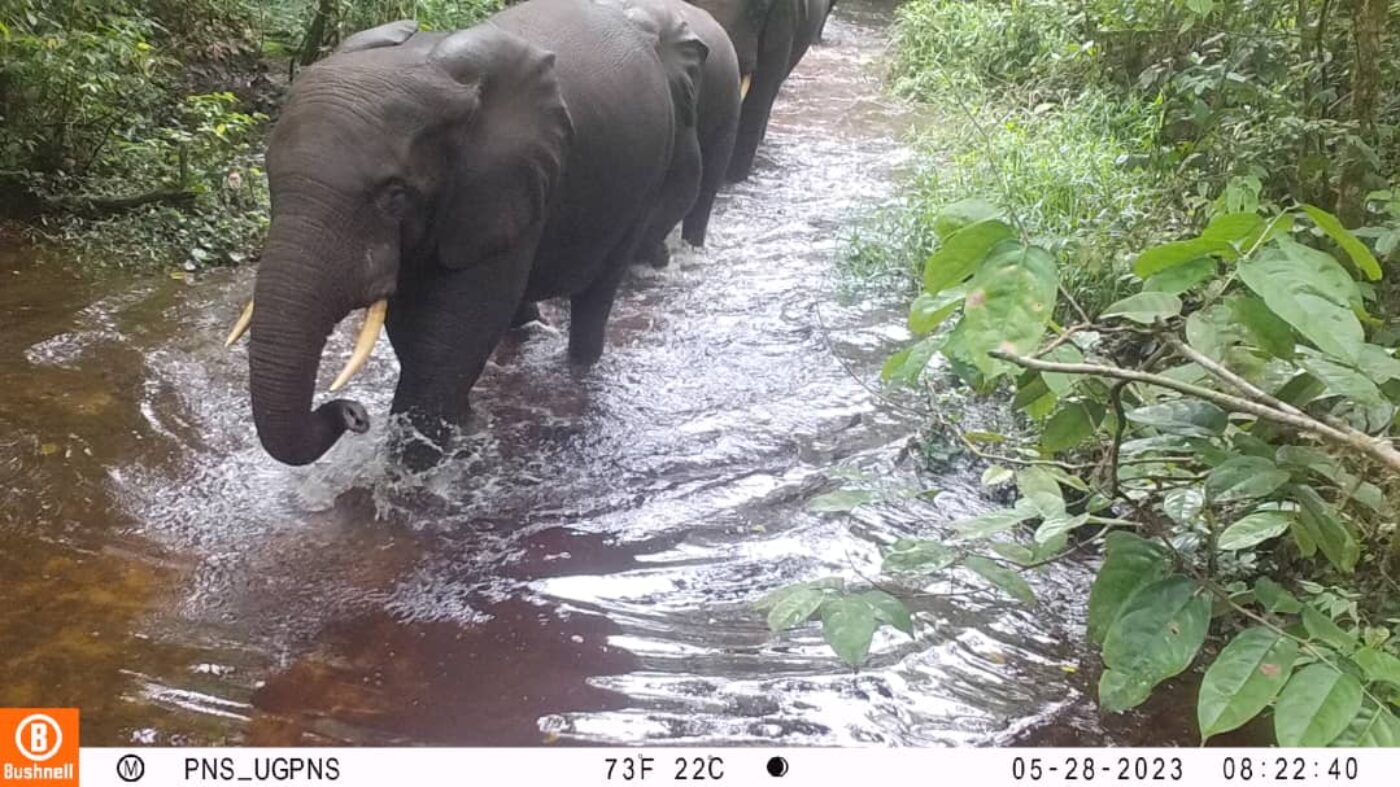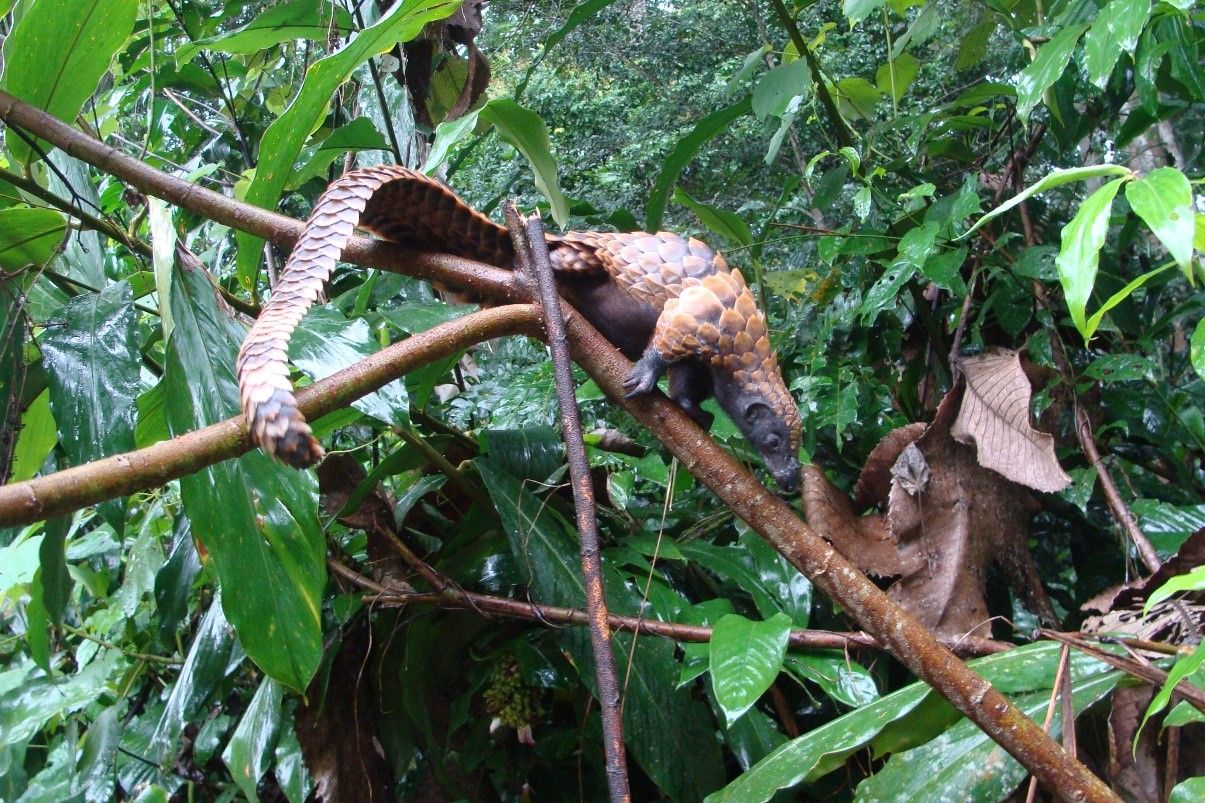Elephants appear in broad daylight in Salonga!

Although the most recent inventories indicate a large population of forest elephants (estimated at 1,500 individuals) in the Salonga National Park, observations of the pachyderms’ diurnal activities date back several years. The daytime sightings of elephant herds reported at Iyono, not far from the Yokelelu station in the North Block, represent a new milestone for bio-monitoring over the past quarter.
Camera traps placed on the outskirts of the Iyono baï revealed, in the last quarter, intense elephant activity during the day. This deserves to be highlighted, as since the insecure years between 1998 and 2015, marked by elephant poaching reported near the park’s baïs, no such activity has been observed.
Observers attribute the change in habits to the animal’s survival instinct, which has prompted it to change the times at which it visits this vital area, preferring the night for its calm and the absence of poachers. The bai is generally a clearing with diversified vegetation that serves as grazing land for the elephants and as a bathing pool where they can enjoy themselves by shouting and blowing on the water.
To date, Iyono is still an exception, being the only one of the 5 baïs observed where elephant presence and activity are reported until 9:00 or 10:00 am.
According to bio-monitoring data, the Iyono block is home to a high density and large population of elephants, whose tracks can already be seen 1.5km from the left bank of the Lomela River, just opposite the Yokelelu station.
According to several witnesses, it doesn’t take much effort to observe tracks or encounter elephants in this bai while they are grazing or bathing.
These results are the fruit of anti-poaching and ecological monitoring activities carried out in key areas of the park by WWF and ICCN, with the support of financial partners including the EU, KfW, USAID, SCI and Fondation Ségré.
The SNP, which is preparing to launch ecotourism in the near future around the Yokelelu station, sees this return of elephants to their normal behavior as good reason to hope for its full success .



